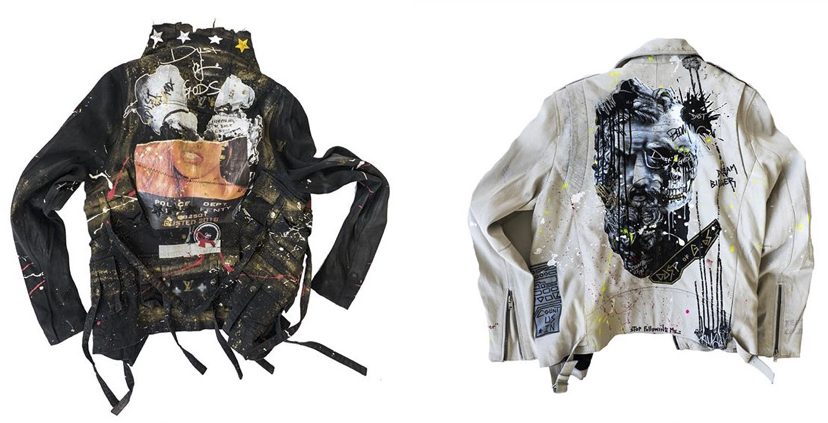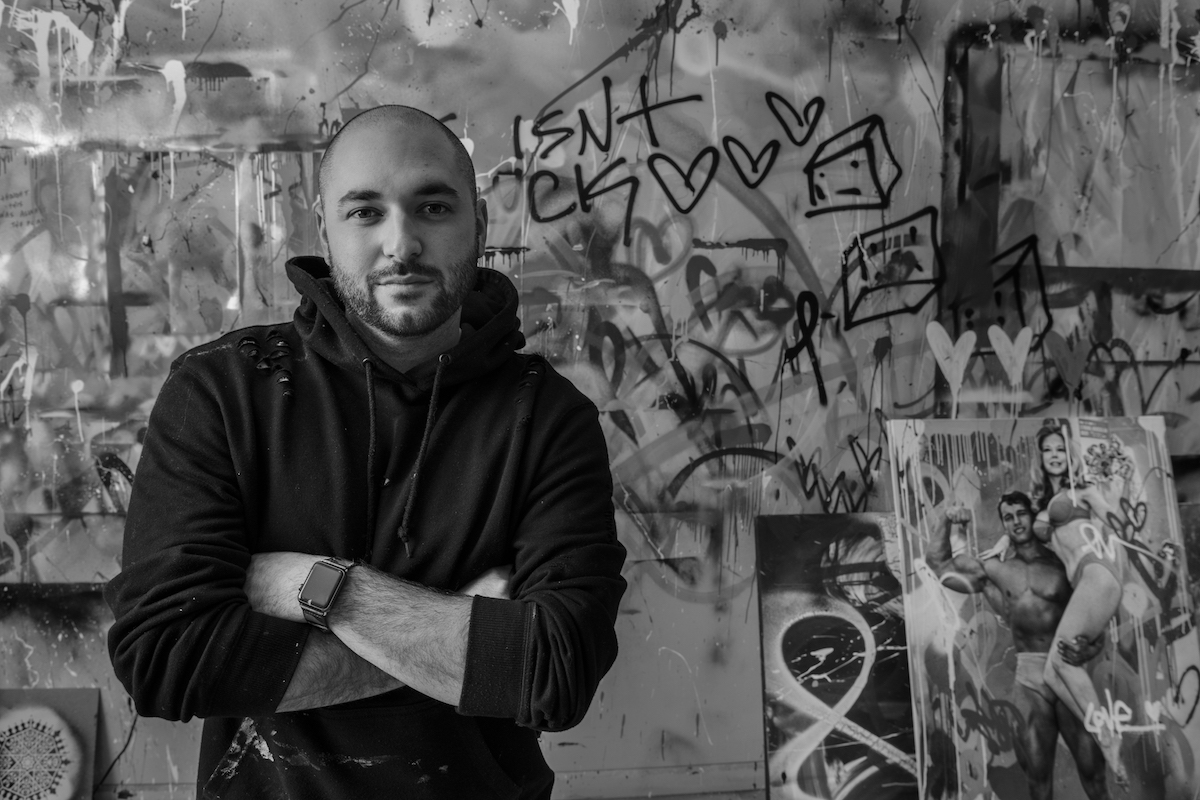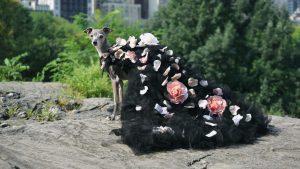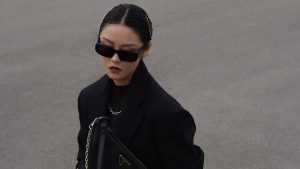When Anthony Ricciardi landed a job in finance at a top-tier real estate company in Yorkville’s Cumberland Street, he had achieved a life-long dream.
Less than five years later, Ricciardi has since left the financial industry and just celebrated his fifth solo art show, which is located in Yorkville Village – ironically, down the street from his first job. How did he do it? A few cold emails, some sleepless nights and a lot of dedication. The Toronto-based contemporary artist sat down with Bay Street Bull to map out his trajectory from finance to art.
Ricciardi’s canvases are currently on display in a 360-degree floating gallery, unlike any previous show from the multidisciplinary artist, at The Oval in Yorkville Village. At the bottom of canvases that have been fastened together, Ricciardi added a few messages of hope and inspiration. “I knew people would be interacting from three different ways,” Ricciardi says. “So I wanted to make sure that the people looking underneath them have the ability to see that.”
As told to Ross Dias
—


Baseball Dreams:
I always had a passion for arts, but I also had many other passions growing up. During my final years of high school, I wanted to get into a NCAA division one university in the United States. I’ve always been very aggressive on my emails and calls. I emailed all 306 division-one schools in the United States, multiple times. Nobody responded. So I narrowed the list down to the 10 schools I really wanted to go to and called the coaches there. Finally, Alabama State University gave me an opportunity and a scholarship, so I went to Alabama to study finance and play baseball.
At college, my schedule was just baseball and class. I was on the field every day at 6 a.m., then we had class all day. At 2 p.m., I was back on the field and by 8 p.m., I was either in study hall or the weight room. After I graduated, I returned home to Toronto where I landed a job at Romsen Investment Corporation. Working for a big investment fund was everything I could dream of coming out of school.


The Transition to Art:
But, once I started my job, my nights and weekends were what truly mattered to me because that’s when I painted every waking minute from 7 p.m. to 2 a.m. At the start, I had no idea why – simply painting for myself and trying to learn. I was just throwing paint everywhere and making a mess. That’s where my initial style developed with layers and depth. I had no idea about self-promotion but I would post a couple pieces to Instagram to share my art with friends.
Over those five years, people started to notice and I would get requests for commissions. I began to email every interior designer or architect I could. Of those hundreds and hundreds of emails, two or three started to reach out. I was asked to do a mural in the city, and I responded that it would be tough because of work so it could only be after 8 p.m. or on a weekend. I was trying to maneuver the situation one way or the other. And then the next step that really took it over for me was, “Hey can you come to New York?”, “Hey can you come to LA?”, “Hey, can you come to Chicago?”. And it’s like “No, I can’t take off two weeks of work”.
Eventually I was able to leave my job to pursue art full-time, but the cold emails haven’t ended, they’ve only gotten more ambitious. I want my art to be seen everywhere from Hong Kong to Dubai. Everything is a business. I can’t just paint and expect things to work. My three worlds: baseball, finance and art -they don’t match at all. I believe that the common trait through all of them is incredible dedication to one singular thing. I took traits out of all those different lives, and now I’m able to take all those good things and put it into one little industry.













